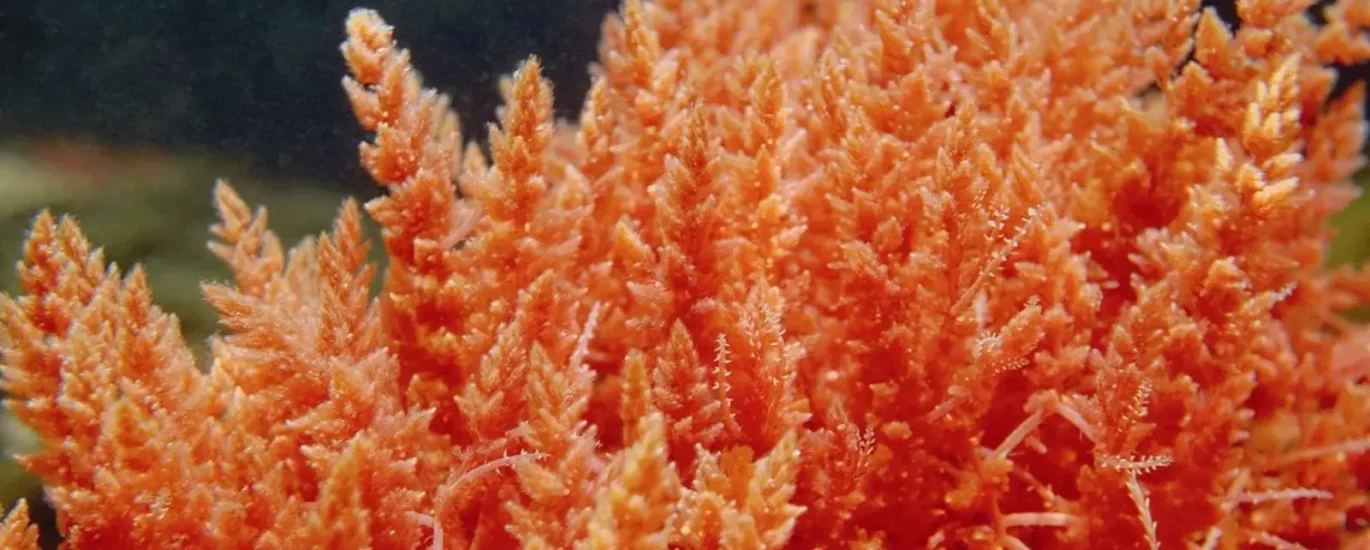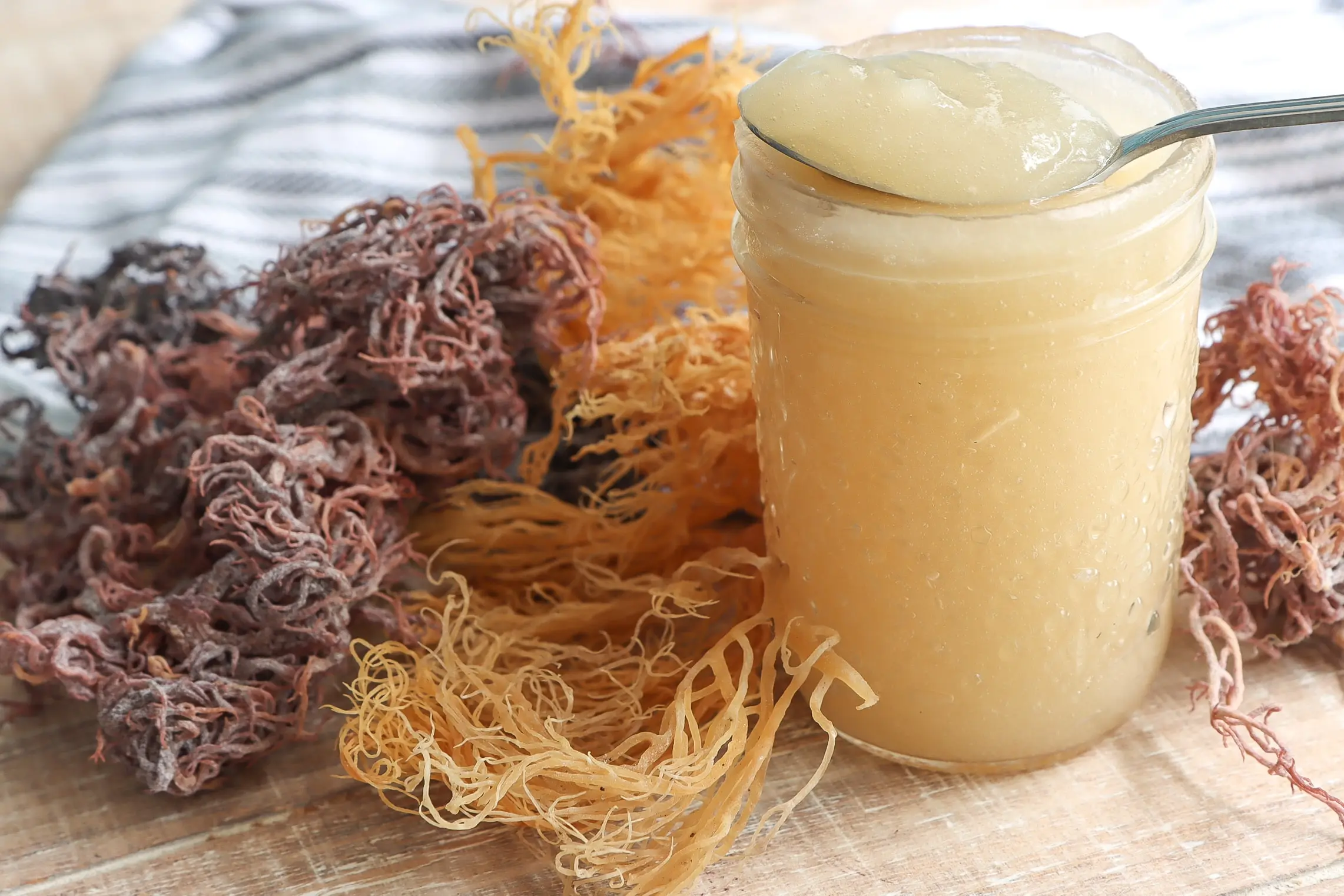

wordpress-seo domain was triggered too early. This is usually an indicator for some code in the plugin or theme running too early. Translations should be loaded at the init action or later. Please see Debugging in WordPress for more information. (This message was added in version 6.7.0.) in /home/sehatnagar.com/public_html/wp-includes/functions.php on line 6114
Sea moss has become increasingly popular as a natural superfood due to its rich nutritional content. However, it’s important to know how much sea moss to consume each day for optimal health benefits. In this guide, we aim to help you determine the right amount of sea moss to incorporate into your daily routine. Consuming too much or too little may have negative effects on your health. Sea moss is packed with vitamins, minerals, and antioxidants that support overall well-being. It contains important nutrients like vitamin C, vitamin K, magnesium, iodine, potassium, and calcium.
Sea moss offers various potential health benefits, including boosting immune function, aiding digestion, improving skin health, and helping with weight management. It may also have anti-inflammatory and antioxidant properties. However, the ideal daily intake of sea moss differs from person to person. Factors such as body weight, health goals, and dietary needs influence the amount you should consume. It’s important to consider these factors to find the right balance. By providing guidelines on daily sea moss intake, this article aims to give you the knowledge to make informed decisions about your health. Remember to consult a doctor or nutritionist to ensure sea moss aligns with your individual needs and health conditions.
Sea moss, also known as Irish moss or Chondrus crispus, is a type of seaweed that grows in coastal areas. It has been used for centuries because it’s believed to be good for your health and can be used in cooking. Sea moss has a jelly-like texture and is usually sold as dried or powdered seaweed.
Sea moss is packed with important nutrients that are beneficial for your body. It contains vitamins, minerals, and antioxidants that are good for your overall well-being.
Vitamins: Sea moss has lots of vitamins that help keep you healthy. It has a high amount of vitamin C, which helps your immune system, promotes collagen production, and protects against damage caused by harmful substances in your body. Sea moss also provides vitamin K, which is important for blood clotting and strong bones. It contains other B vitamins like folate, riboflavin, and niacin, which give you energy and help your cells work properly.
Minerals: Sea moss is rich in minerals that your body needs to function well. It’s especially known for its iodine content, which is important for your thyroid gland to work properly and control your metabolism. Sea moss also has magnesium, which helps your muscles and nerves work correctly, and potassium, which is necessary for a healthy heart and maintaining the right balance of fluids in your body. It also contains calcium for strong bones, as well as iron, zinc, phosphorus, and manganese.
Antioxidants: Sea moss contains antioxidants that protect your body from damage caused by harmful substances called free radicals. These antioxidants, like flavonoids, beta-carotene, and vitamin C, can help reduce inflammation and lower the risk of chronic diseases.
The amount of sea moss you should consume each day depends on different factors. Here are three key factors to consider:
Finding the right daily intake of sea moss can be a trial-and-error process. It’s recommended to start with smaller amounts and gradually increase as needed. Monitoring how you feel and seeking advice from professionals can help you determine the optimal amount for your needs. Lastly, sea moss should not be relied upon as the sole source of nutrition. It’s best to incorporate it into a diverse diet that includes a variety of nutritious foods.
General recommendations: For most adults, it is recommended to start with a small amount of sea moss, like ½ to 1 teaspoon of sea moss powder or 1 to 2 tablespoons of dried sea moss. Gradually increase the dosage over time to 1 to 2 tablespoons of dried sea moss or 1 to 2 teaspoons of sea moss powder. This allows your body to adjust and helps you understand how sea moss affects you. Specific health conditions: If you have specific health conditions like a thyroid disorder or digestive issues, it’s best to consult a doctor or nutritionist. They can provide tailored recommendations for your unique needs. They may suggest higher doses of sea moss to support thyroid function or starting with a smaller amount if you have digestive concerns.

Athletes and active individuals: If you’re an athlete or have an active lifestyle, you may have higher nutrient needs. In these cases, you might consider taking 2 to 4 tablespoons of dried sea moss or 1 to 2 tablespoons of sea moss powder. However, it’s important to consult with a doctor or sports nutritionist to determine the right amount for your specific activity level and nutritional requirements.
Remember, these are general guidelines, and everyone is different. Pay attention to how your body responds to sea moss and consult with professionals if you have any concerns. It’s also important to have a balanced diet that includes other nutritious foods alongside sea moss.
Sea moss is available in different forms, including raw, gel, powder, and capsules, each with its own advantages and considerations. Understanding these options and how to prepare and incorporate sea moss into your daily routine is important. Here’s a closer look at the different forms and some tips for consumption:
Remember, when incorporating sea moss into your daily routine, it’s important to listen to your body and observe any potential reactions. If you have any underlying health conditions or concerns, consult with a doctor or nutritionist before making significant changes to your diet.
While sea moss has many benefits, it’s important to be aware of potential side effects and take precautions. Here are some things to keep in mind:
Sea moss is a popular superfood with lots of nutrients. Knowing how much to take each day is important for getting the most benefits. It depends on factors like your weight, health goals, and diet. Sea moss has vitamins, minerals, and antioxidants that can support your immune system, digestion, and skin health. But everyone is different, so it’s a good idea to ask a doctor for advice.
Adding sea moss to a balanced diet is key. Start with a small amount and increase it gradually. There are different forms like raw, gel, powder, or capsules to choose from. Be careful not to have too much sea moss, as it can cause digestive problems. If you have health issues or take medications, talk to a doctor first. Allergies to sea moss are rare but possible, so watch out if you have allergies.
How Long Can You Leave A Cavity Untreated?